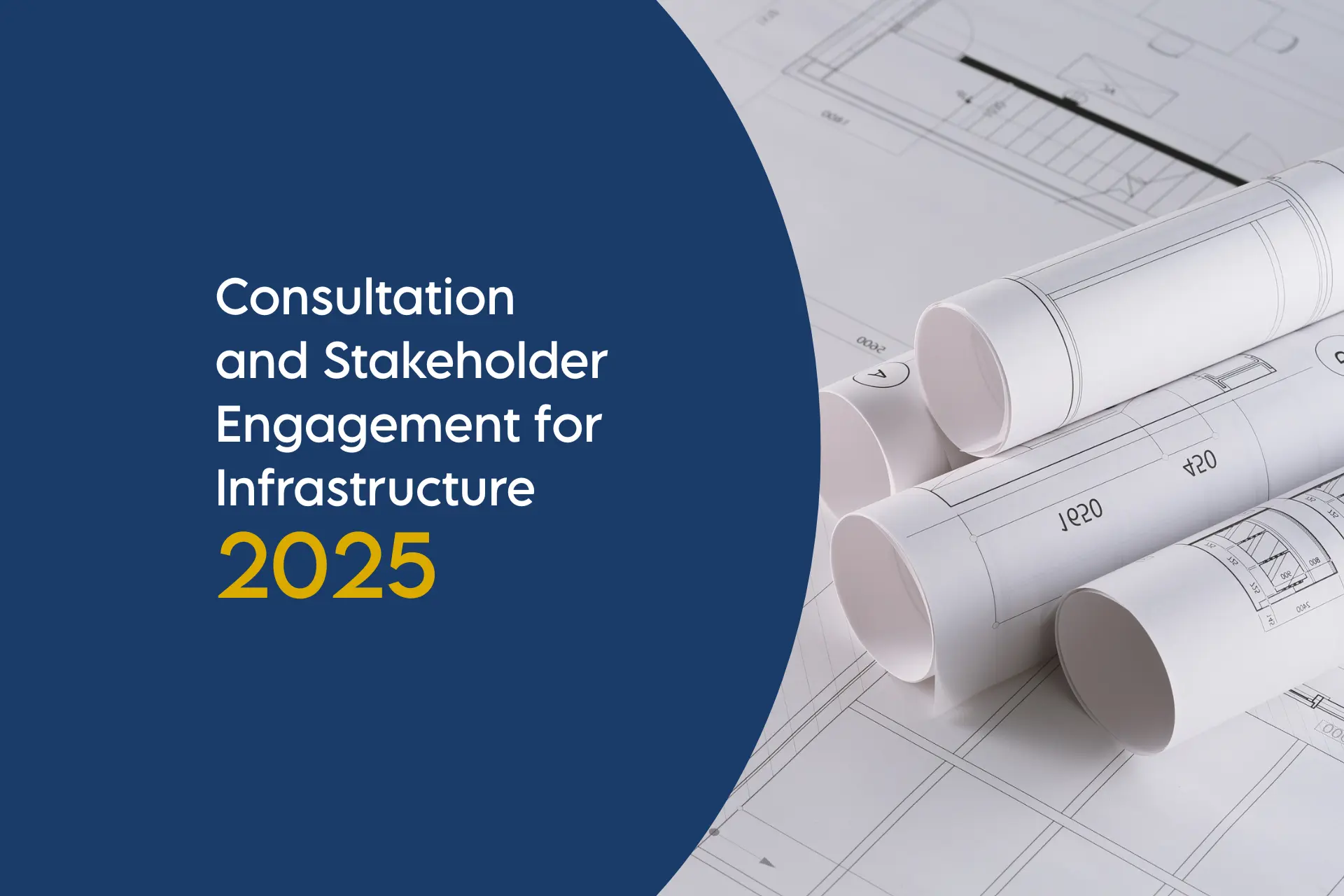
Winning strategies for delivering effective consultation
Recent proposals to remove statutory requirements for consultation on major infrastructure projects are set to change how developers engage with local communities and stakeholders. This doesn’t mean less participation – it means greater flexibility outside of the current set timelines. It’s an opportunity to design a consultation strategy that enables schemes to progress faster, reduce risks and deliver better outcomes.
Without legal requirements, the quality of consultations is more important than ever: it’s now the key factor in moving projects forward. On 22 October 2025, our sister company, Waterfront Conference Company, held its annual Consultation and Stakeholder Engagement for Infrastructure event in London to provide practical guidance on what an effective consultation looks like amid significant policy changes.
Developers from across different sectors, including RWE, Anglian Water, SSEN Transmission and Outer Dowsing Offshore Wind shared how they overcame the biggest challenges faced during consultations.
Here are some of the key themes:
It’s never too soon to engage – even with limited information
Early engagement lays the groundwork for meaningful consultation. However, limited information at this stage can often lead to frustration and distrust within communities. To build confidence, introduce your project clearly and establish key messages from the outset. Conduct ‘horizon scanning’ to identify stakeholders and local groups who can support your efforts. Design a strategy that can be adapted as project design evolves and feedback emerges. Above all, keep the motivation behind your project front and centre, ensuring that communities understand why the project matters and how it benefits them.
You haven’t lived until you’ve door knocked
Taking a proactive approach to engagement is critical to prevent misinformation, especially in areas where multiple projects are being proposed. Misinformation often spreads where you cannot see it: Facebook groups, Neighbourhood WhatsApp chats or informal gatherings. This is why it’s important to establish direct communication channels with your audience. Be visible by knocking on doors, leaving postcards and letters inside branded envelopes and attending parish council meetings or local events. Without these steps, residents will establish their own communication networks, which will be harder to manage.
Recognise and prioritise stakeholders’ wellbeing
One of the greatest risks to any project comes from concerned stakeholders, including property owners, who might feel threatened by the scheme or residents, who believe that new infrastructure will disrupt their routine and local identity. Rather than dismissing these fears, take the time to understand and respect them. Consider providing practical support such as mental health guidance, housing advice or legal and financial help. By discussing potential impacts before they happen, you can create bespoke solutions for those most affected, including relocation assistance or a compensation process that can reduce anxiety and confusion. Ignoring wellbeing risks can be costly and may also damage your reputation.
Be a good neighbour throughout the entire development process
As a developer planning to have a long-term presence in the community, you need to integrate yourself and build lasting relationships. Set realistic expectations that can be maintained over the years to avoid future disappointment and secure ongoing support. While it’s important to communicate complex information clearly, be mindful not to oversimplify in a way that could be perceived as patronising and could undermine trust. This will allow you to establish strong connections during the pre-application phase. To maximise engagement success, these need to be supported even after consent and throughout construction. Ensure you continue direct engagement or hand it over to trusted representatives.
It’s clear that projects often fail because of communication issues not engineering challenges. To help mitigate against this, find out more about our services and get in touch to find out how we can support your engagement and consultation strategy.
And if you want to stay ahead of the thinking and explore more innovative approaches to engaging communities, make sure you book onto next year’s Consultation and Stakeholder Engagement for Infrastructure conference.
